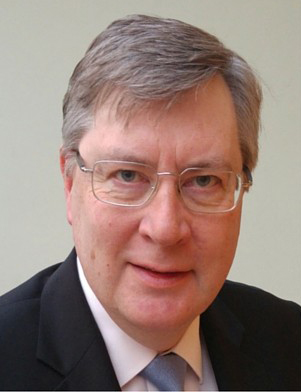PCC talks to officers about protect the protectors campaign
ESSEX Police Federation has been working with the Police and Crime Commissioner on its #ProtectTheProtectors campaign.
Steve Taylor met Roger Hirst (pictured) in February to discuss spit guards, Taser, body-worn video and sentencing.
Mr Taylor said: “The time that we had with Mr Hirst was really useful. We spoke about the ‘Protect the Protectors’ campaign nationally being launched, and we put a local perspective onto what that means here in Essex.”
He added: “Spit guards played an important part of that discussion and we briefed the Police and Crime Commissioner on our attempt to bring them into the force. He was broadly supportive of the work that we have done and that we continue to do in that area.
“We also discussed the legal efforts which are underway to introduce the support police officers get from the criminal justice system when the perpetrators who have attacked or assaulted them come before the judiciary. So we were able to put a local context onto that national push.
“We also spoke about how that national push is focusing on the back bench MPs and building relationships there which hopefully will carry the federation and Government forward, as opposed to some of the high profile attempts we’ve made in the past which may have fallen by the wayside because of the politics involved.”
Finance was also under discussion, Mr Taylor added. He explained: “We have made the argument for more body-worn cameras, more Taser, more spit guards, but who picks that cost up?
“Tinances of the organisation are an important part of what the Police and Crime Commissioner can deliver. So we also had an interesting conversation about the precept here in Essex and on the national grant for Essex, and the work that’s going on by the Police and Crime Commissioner to increase the funding that Essex Police gets from the different areas.”
Mr Taylor said it was important that the Federation had a good working relationship with the PCC if it is to influence the important decisions facing the service.
He added: “It is important that we can be honest and we can be frank, we can agree to disagree where we need to, but that we can also support one another in where our aims are the same.”


Comments are closed.